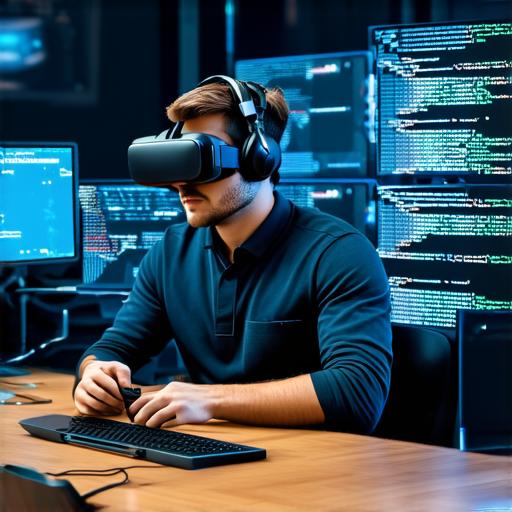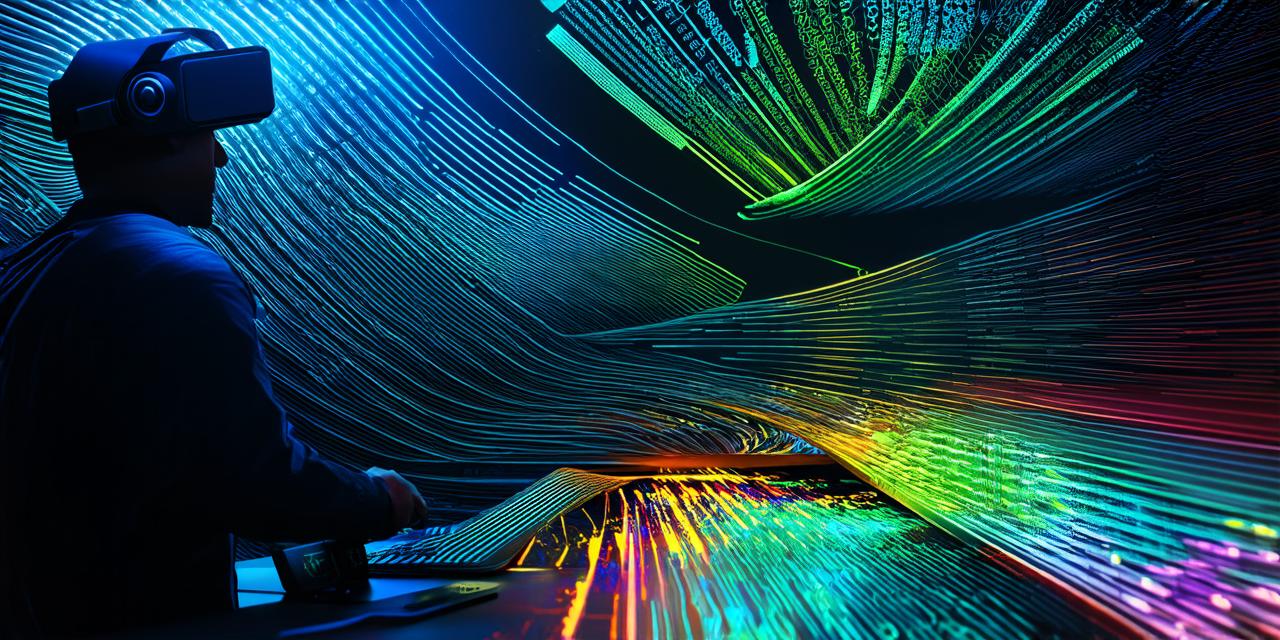<!DOCTYPE html>
Skills and Knowledge Required
Virtual reality (VR) developers need to be proficient in programming languages such as C++, Java, and C. They must also have experience with game engines such as Unity and Unreal Engine.
3D Modeling: Creating immersive virtual environments requires a strong understanding of 3D modeling software such as Blender and Maya.
User Experience (UX) Design: VR developers must be skilled in designing intuitive and immersive user experiences that enhance the overall user experience.
Motion Capture: VR applications require accurate motion capture data, which requires a strong understanding of motion capture technology and software.
Interaction Design: VR developers need to be able to design interactive elements such as buttons, menus, and controls that are intuitive and easy to use in a virtual environment.
Curriculum
Virtual reality developer degrees typically comprise a combination of theoretical and practical courses that cover the following topics:
- Introduction to VR: This course covers the basics of VR technology and its applications.
- Programming for VR: Students learn programming languages such as C++, Java, and C, and how to use game engines like Unity and Unreal Engine.
- 3D Modeling for VR: This course covers the principles of 3D modeling and how to create immersive environments using software such as Blender and Maya.
- UX Design for VR: Students learn about designing intuitive user experiences that enhance the overall VR experience.
- Motion Capture for VR: This course covers the principles of motion capture technology and how to use it to create realistic character movements in VR applications.
- Interaction Design for VR: Students learn how to design interactive elements such as buttons, menus, and controls that are intuitive and easy to use in a virtual environment.
- Advanced Topics in VR Development: This course covers advanced topics such as VR hardware, performance optimization, and debugging techniques.
Job Prospects
The demand for skilled VR developers is growing rapidly, with companies in a variety of industries investing in VR technology. Some of the most promising job prospects for VR developers include:
- Game Development: With the rise of VR gaming, there is a high demand for skilled game developers who can create immersive and engaging VR experiences.
- Healthcare: VR technology has numerous applications in healthcare, including medical training, patient education, and therapy. VR developers who specialize in healthcare applications have a bright future.
- Advertising and Marketing: Companies are increasingly using VR to create immersive advertising and marketing campaigns. VR developers with experience in this field can expect high demand.
- Education: VR technology has the potential to revolutionize education, allowing students to learn in immersive and interactive environments. VR developers who specialize in educational applications have a bright future.
- Tourism and Hospitality: VR technology is being used to create virtual tours of hotels, museums, and other attractions. VR developers who specialize in this field can expect high demand.

Potential Benefits
Pursuing a career in VR development offers numerous potential benefits, including:
- High Demand: As VR technology continues to grow in popularity, there is a high demand for skilled developers who can create immersive and engaging experiences. This means that VR developers can expect job security and competitive salaries.
- Creative Opportunities: VR development allows for endless creative opportunities, from gaming and entertainment to healthcare and education.
- Competitive Salaries: Due to the high demand for their skills, VR developers can expect competitive salaries. This means that they can earn a good living while pursuing their passion for technology and creativity.
- Growing Industry: The VR industry is still in its early stages, offering plenty of opportunities for growth and advancement. This means that VR developers can expect to see new developments and technologies emerge, leading to exciting and challenging work.
- Personal Development: Pursuing a career in VR development allows individuals to learn new skills and technologies, leading to personal growth and development.
